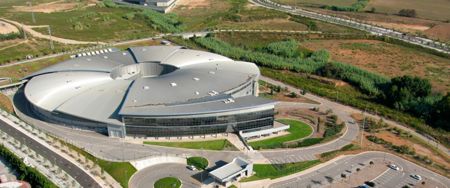HPCnow! Helps Alba Synchrotron in Spain Improve Storage Performance
With Excelero's NVMesh
This is a Press Release edited by StorageNewsletter.com on October 5, 2020 at 2:42 pmExcelero Storage Ltd. said that its partner HPC Now Consulting SL (HPCnow!), a provider of advanced supercomputing and HPC services for scientific and research organizations, is helping major life science researchersto accelerate research on Covid-19 and other diseases through more efficient storage with Excelero’s NVMesh software.

HPCnow! has performed a pilot at ALBA, a synchrotron light facility near Barcelona, to demonstrate how existing storage technologies can deploy elastic NVMe based storage to support the acquisition and processing of the massive volumes of scientific data generated by its beamlines, which use soft and hard X-rays’ intense light source beams to help to characterize materials, their properties and behavior.
The pilot report will be published in a market consultation of the CELLS in 2020. Over 2,000 researchers in biosciences, condensed matter (magnetic and electronic properties, nanoscience) and materials science obtain information from ALBA’s beamlines each year. With an initiative to support SMEs performing Covid-19 research, in addition its other scientific data processing and analysis workloads, ALBA’s IT systems department needs a scale-out storage to enable timely analysis and conclusions.
NVMesh is software-defined distributed block storage that delivers Elastic NVMe for HPC workloads as well as AI/ML/deep learning, data warehouses and containers. Customers benefit from the performance of local flash with the convenience of centralized storage while avoiding proprietary hardware lock-in and reducing the overall storage TCO. Its low-latency, throughput distributed block storage makes it fast and easy to scale up storage capacity as datasets grow – ensuring HPC applications don’t become bottlenecked, and providing the agility, elasticity, price/performance and ROI that are often hard to achieve at scale.
“Top research institutions need far more throughput than traditional storage systems can provide to power data-intensive microscopy and other research, and we’ve been tremendously impressed with the high IO/s and low latency that Excelero delivers with its NVMesh software,” said David Tur, CEO, HPCnow!, who directed the ALBA PoC project. “We are already in the early stages of exploring several large-scale deployments where scale-out storage such as Excelero’s NVMesh can help researchers achieve their goals faster and at lower cost.“
“As a company that sells 100% through partners, Excelero is totally focused on enabling partner success, and we’ve been thrilled at the innovative approaches that HPCnow! is bringing to organizations that need scale-out storage for complex HPC applications,” said Kirill Shoikhet, CTO, Excelero. “We are delighted to help HPCnow! serve its research customers with more efficient, cost-effective storage that helps to accelerate their life-saving work.“
About ALBA Synchrotron
It is the only synchrotron light source in Spain. Its operation, based on a complex of electron accelerators, lets visualise and analyse matter and its properties at an atomic and molecular level. Located in Cerdanyola del Vallès (Barcelona), ALBA receives more than 2,000 visits from research professionals and generates about 6,000 hours of synchrotron light per year. Its properties allow high quality information to be obtained on the characteristics of the samples under analysis. This year, the ALBA Synchrotron celebrates its 10th anniversary. It has 8 beamlines operating and 5 more under construction which are used for experiments in biomedicine, nanotechnology, materials science, cultural heritage, physics, environmental science or chemistry, among others.
Managed by the public Consortium for the Construction, Equipment and Exploitation of the Synchrotron Light Laboratory (CELLS) and jointly financed by the Spanish and Catalan governments, the ALBA Synchrotron is a scientific and technical infrastructure that brings added value to the scientific and industrial sectors.













 Subscribe to our free daily newsletter
Subscribe to our free daily newsletter

